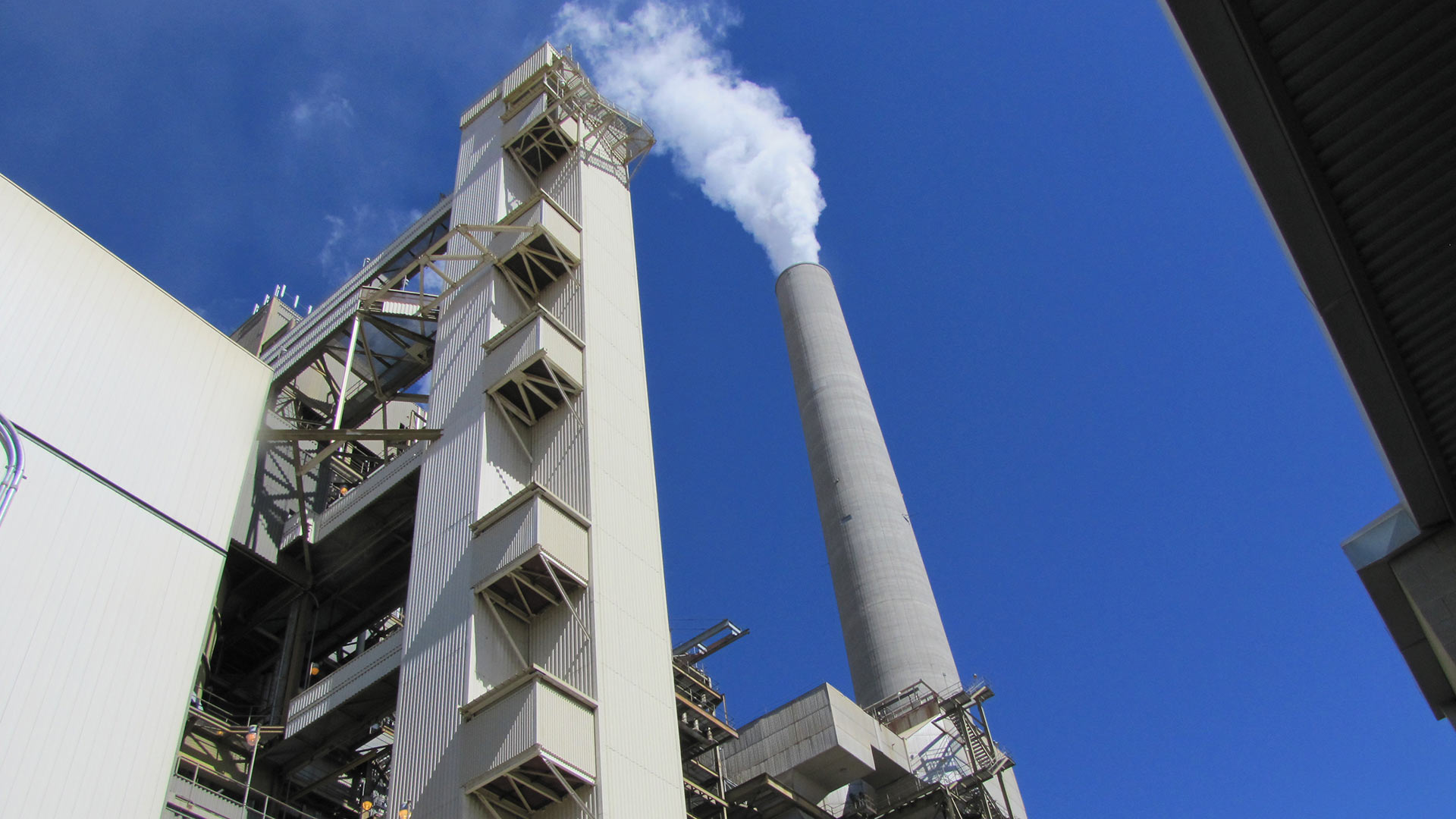 One of the Navajo Generating Station's three 750-megawatt generators.
One of the Navajo Generating Station's three 750-megawatt generators.
A new executive order from President Donald Trump aiming to revive coal mining is reigniting debate in the Navajo Nation — where leaders are split between promises of jobs and warnings about health risks tied to a long-struggling industry.
Tribal President Buu Nygren, who was in the room when Trump signed the order, welcomed the energy move and emphasized the importance of involving tribal nations in such decisions.
“Together, we can strengthen local economies, generate revenue and create good-paying jobs in historically underinvested areas like ours,” Nygren said in a press release.
But former tribal President Jonathan Nez criticized Nygren and Republican Rep. Eli Crane for “chasing dying industries.” Nez, who ran against Crane in November, argued that coal mining threatens water, air and the health of miners.
“Returning to coal won’t solve our problems — it will only deepen them,” Nez said. “The energy produced from coal plants on the Navajo Nation has historically gone elsewhere — leaving our communities in the dark, literally and economically.”
A 2023 study prepared for the U.S. Department of Labor examining cases of black lung disease in the Navajo Nation found a “public health burden” linked to coal mining. The report also noted the underreporting of black lung cases and deaths, possibly due to a lack of trust in the federal government and researchers.
“The decline of coal is a market reality, not a political talking point,” Nez said. “Our future lies in renewable energy, not in clinging to the past.”
Nygren views the coal industry as a key source of employment in the Four Corners region. He cited the 2019 closure of the Navajo Generating Station in Page, which cost about 3,000 jobs and $40 million in annual revenue.
“Our focus now must be on preserving employment in the Four Corners region and ensuring that any transition benefits — rather than burdens — our people,” Nygren said.
The station closed in 2019 due to shifting economic conditions in the energy sector.
“Closing NGS was a difficult but necessary decision based on the changing economics of the energy industry that has seen natural gas prices sink to record lows along with the growth of economical renewable resources,” the Salt River Project, which operated the station, said in a 2019 press release.
Before Trump signed the executive order on Tuesday, state Republican lawmakers sent a letter to Interior Secretary Doug Burgum urging him to “use his full authority to stop the retirement of coal-fired power plants in Arizona and support the reactivation of those already shut down.”
“The closure of Navajo Generating Station in 2019 and ongoing retirement of Cholla Power Plant have led to significant job losses, economic hardships and a reduction in affordable and reliable energy options for our communities,” the lawmakers wrote in their April 4 letter. “Revitalizing these plants and supporting the continued operation of our remaining units can help to bridge the gap in energy production as we work to meet rising demand.”
Tuesday’s federal order directs agencies to remove any federal barriers that “undermine” coal production and ensure that policies do not “discriminate” against the industry. It also instructs the interior and agriculture secretaries to prioritize coal leasing on public lands, including using emergency authorities to expedite environmental reviews.

By submitting your comments, you hereby give AZPM the right to post your comments and potentially use them in any other form of media operated by this institution.